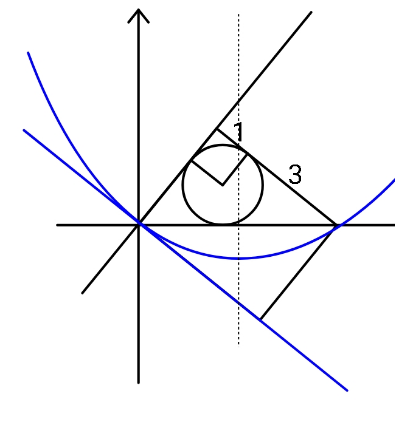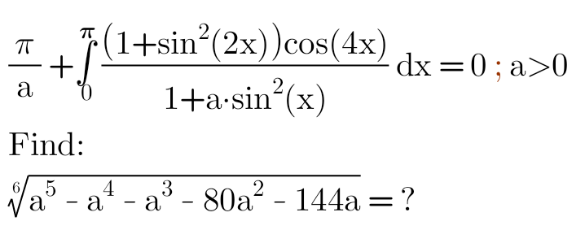
AllQuestion and Answers: Page 613
Question Number 158735 Answers: 0 Comments: 2

Question Number 158731 Answers: 0 Comments: 0

Question Number 158708 Answers: 2 Comments: 1

Question Number 158707 Answers: 0 Comments: 0

Question Number 158704 Answers: 0 Comments: 0

Question Number 158724 Answers: 2 Comments: 0
Question Number 158700 Answers: 0 Comments: 0

Question Number 158699 Answers: 0 Comments: 3
Question Number 158698 Answers: 0 Comments: 0
Question Number 158697 Answers: 1 Comments: 0
$$\int_{\mathrm{0}} ^{\mathrm{1}} {ln}\left({ln}\left(\mathrm{1}−{x}\right)\right){dx}=? \\ $$
Question Number 158696 Answers: 0 Comments: 0
Question Number 158691 Answers: 1 Comments: 0
Question Number 158687 Answers: 1 Comments: 0
Question Number 158675 Answers: 2 Comments: 1

Question Number 158674 Answers: 0 Comments: 2

Question Number 158671 Answers: 0 Comments: 3
Question Number 158668 Answers: 1 Comments: 0
Question Number 158664 Answers: 2 Comments: 3

Question Number 158644 Answers: 1 Comments: 2
Question Number 158638 Answers: 0 Comments: 0
Question Number 158636 Answers: 0 Comments: 3

Question Number 158711 Answers: 2 Comments: 2

Question Number 158630 Answers: 0 Comments: 0

Question Number 158685 Answers: 0 Comments: 1

Question Number 158622 Answers: 1 Comments: 1

Question Number 158781 Answers: 2 Comments: 0

Pg 608 Pg 609 Pg 610 Pg 611 Pg 612 Pg 613 Pg 614 Pg 615 Pg 616 Pg 617
